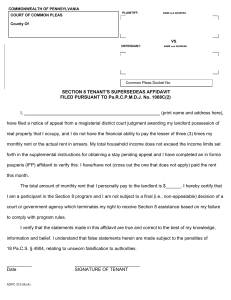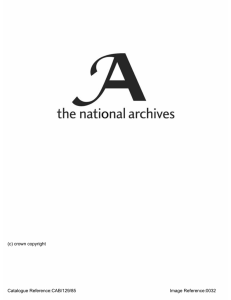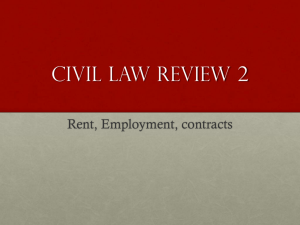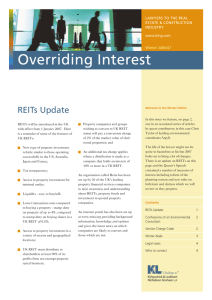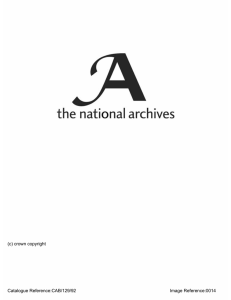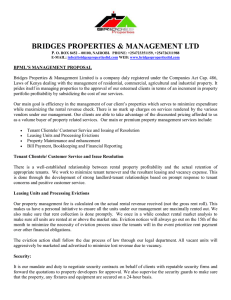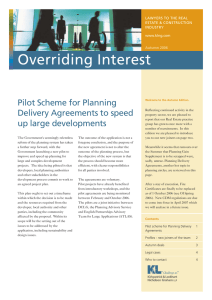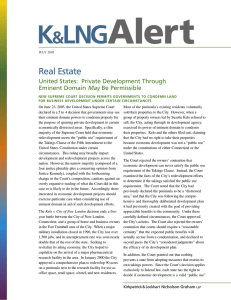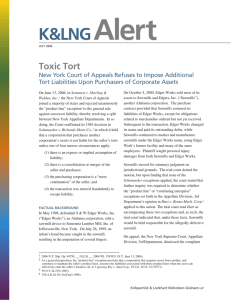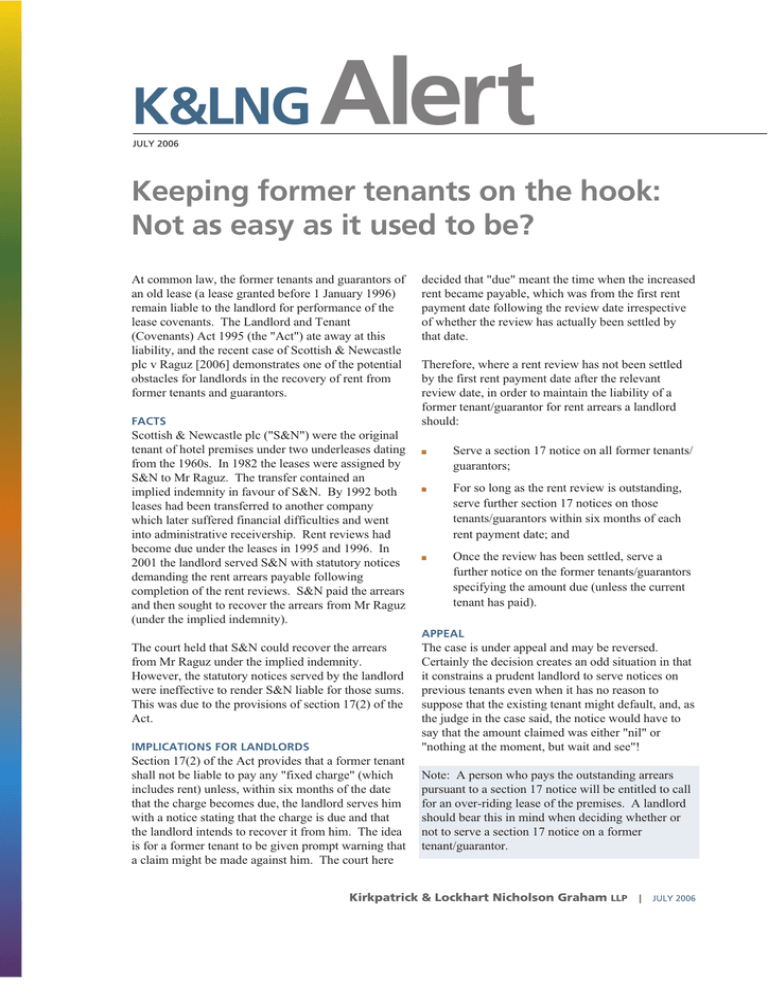
K&LNG
JULY 2006
Alert
Keeping former tenants on the hook:
Not as easy as it used to be?
At common law, the former tenants and guarantors of
an old lease (a lease granted before 1 January 1996)
remain liable to the landlord for performance of the
lease covenants. The Landlord and Tenant
(Covenants) Act 1995 (the "Act") ate away at this
liability, and the recent case of Scottish & Newcastle
plc v Raguz [2006] demonstrates one of the potential
obstacles for landlords in the recovery of rent from
former tenants and guarantors.
FACTS
Scottish & Newcastle plc ("S&N") were the original
tenant of hotel premises under two underleases dating
from the 1960s. In 1982 the leases were assigned by
S&N to Mr Raguz. The transfer contained an
implied indemnity in favour of S&N. By 1992 both
leases had been transferred to another company
which later suffered financial difficulties and went
into administrative receivership. Rent reviews had
become due under the leases in 1995 and 1996. In
2001 the landlord served S&N with statutory notices
demanding the rent arrears payable following
completion of the rent reviews. S&N paid the arrears
and then sought to recover the arrears from Mr Raguz
(under the implied indemnity).
decided that "due" meant the time when the increased
rent became payable, which was from the first rent
payment date following the review date irrespective
of whether the review has actually been settled by
that date.
Therefore, where a rent review has not been settled
by the first rent payment date after the relevant
review date, in order to maintain the liability of a
former tenant/guarantor for rent arrears a landlord
should:
n
n
n
Serve a section 17 notice on all former tenants/
guarantors;
For so long as the rent review is outstanding,
serve further section 17 notices on those
tenants/guarantors within six months of each
rent payment date; and
Once the review has been settled, serve a
further notice on the former tenants/guarantors
specifying the amount due (unless the current
tenant has paid).
APPEAL
The court held that S&N could recover the arrears
from Mr Raguz under the implied indemnity.
However, the statutory notices served by the landlord
were ineffective to render S&N liable for those sums.
This was due to the provisions of section 17(2) of the
Act.
IMPLICATIONS FOR LANDLORDS
Section 17(2) of the Act provides that a former tenant
shall not be liable to pay any "fixed charge" (which
includes rent) unless, within six months of the date
that the charge becomes due, the landlord serves him
with a notice stating that the charge is due and that
the landlord intends to recover it from him. The idea
is for a former tenant to be given prompt warning that
a claim might be made against him. The court here
The case is under appeal and may be reversed.
Certainly the decision creates an odd situation in that
it constrains a prudent landlord to serve notices on
previous tenants even when it has no reason to
suppose that the existing tenant might default, and, as
the judge in the case said, the notice would have to
say that the amount claimed was either "nil" or
"nothing at the moment, but wait and see"!
Note: A person who pays the outstanding arrears
pursuant to a section 17 notice will be entitled to call
for an over-riding lease of the premises. A landlord
should bear this in mind when deciding whether or
not to serve a section 17 notice on a former
tenant/guarantor.
Kirkpatrick & Lockhart Nicholson Graham LLP |
JULY 2006
If you have any queries on any of this Alert please contact one of our lawyers listed below:
LONDON
Paul Alger
Steven Cox
+44 (0)20 7360 8217
+44 (0)20 7360 8213
palger@klng.com
scox@klng.com
www.klng.com
BOSTON • DALLAS • HARRISBURG • LONDON • LOS ANGELES • MIAMI • NEWARK • NEW YORK • PALO ALTO • PITTSBURGH • SAN FRANCISCO • WASHINGTON
Kirkpatrick & Lockhart Nicholson Graham (K&LNG) has approximately 1,000 lawyers and represents entrepreneurs, growth and middle market companies, capital
markets participants, and leading FORTUNE 100 and FTSE 100 global corporations nationally and internationally.
K&LNG is a combination of two limited liability partnerships, each named Kirkpatrick & Lockhart Nicholson Graham LLP, one qualified in Delaware, U.S.A. and
practicing from offices in Boston, Dallas, Harrisburg, Los Angeles, Miami, Newark, New York, Palo Alto, Pittsburgh, San Francisco and Washington and one
incorporated in England practicing from the London office.
This publication/newsletter is for informational purposes and does not contain or convey legal advice. The information herein should not be used or relied upon in
regard to any particular facts or circumstances without first consulting a lawyer.
Data Protection Act 1988—We may contact you from time to time with information on Kirkpatrick & Lockhart Nicholson Graham LLP seminars and with our regular
newsletters, which may be of interest to you. We will not provide your details to any third parties. Please e-mail cgregory@klng.com if you would prefer not to
receive this information.
© 2006 KIRKPATRICK & LOCKHART NICHOLSON GRAHAM LLP. ALL RIGHTS RESERVED.
2
Kirkpatrick & Lockhart Nicholson Graham
LLP
|
JULY 2006

